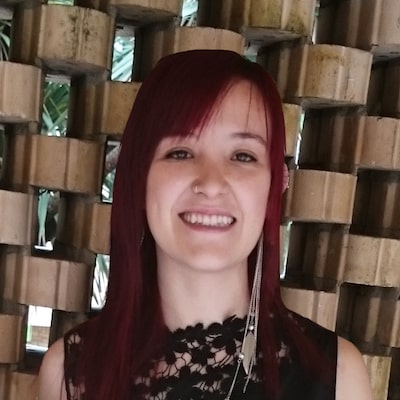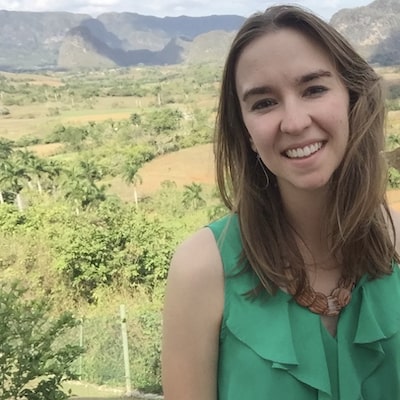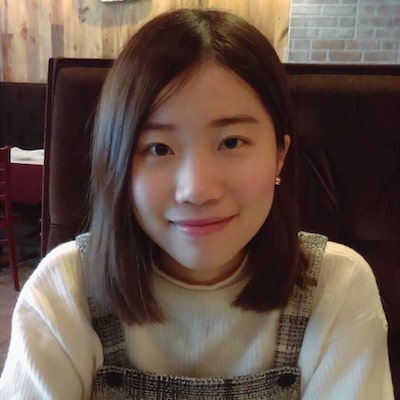CMU Names K&L Gates Presidential Fellows
Three remarkable graduate students chosen for their work impacting society
Three Carnegie Mellon University Ph.D. candidates — one each from the School of Computer Science, Dietrich College and Heinz College — have been chosen as the 2020 K&L Gates Presidential Fellows.
Sponsored by the K&L Gates Endowment for Ethics and Computational Technologies at CMU, the Presidential Fellowship Program provides financial support to recruit and retain outstanding graduate students pursuing work at the intersection of technology and society. Presidential fellows engage in research that asks how humans interact with technology and how we foresee and respond to the unintended consequences of our work.
María Alejandra Arciniegas Gómez
María Alejandra Arciniegas Gómez was born and raised in Bogotá, Colombia, and earned bachelor's and master's degrees in philosophy from la Universidad Nacional de Colombia. She studies philosophy under the guidance of David Danks, and her work focuses on the theoretical and practical conditions under which people provide consent for collection of their personal data.
In nominating Arciniegas Gómez, Danks says, "I have been Alejandra's advisor since she joined CMU. I'm deeply impressed by her ability to pull together multiple ideas into a coherent understanding of a very large cognitive phenomenon. She works to understand the ways in which humans are impacted by the many technologies around us."
Arciniegas Gómez focuses on the nature of privacy and consent in the digital age, an issue she says we are only just beginning to fully understand. "Interdisciplinary approaches have always interested me, and my research at CMU at the intersection of ethics and new technologies was a perfect fit," said Gómez.
Amanda Coston
Amanda Coston earned a B.S.E from Princeton University, where she majored in computer science with a certificate in the Princeton School of Public Policy and International Affairs. After graduating she worked at Microsoft, Teneo, and the Nairobi-based start-up Hivisasa.
She is currently pursuing her degree in Machine Learning and Public Policy under the guidance of Alexandra Chouldechova and Edward H. Kennedy. Coston's research considers human-centered predictive analysis, and she has proposed modeling for a decision support system. Applications of her work so far include identifying algorithmic bias in consumer lending software and the use of risk assessment in child welfare.
Coston was nominated by Chouldechova, who says, "Amanda is a young scholar of exceptional promise. Her work with racial bias helped shape the narrative that eased many of the grave concerns with which community members enter conversations about child welfare work."
Coston has been developing approaches for training and evaluating counterfactual algorithms that will improve upon standard approaches used widely in contexts such as child welfare and criminal justice. Her work has informed discussions for future systems to be used by the Allegheny County Department of Human Services. Coston's research, Chouldechova says, "should become the new standard practice to determine which calls should be prioritized for investigation."
Helen (Shuxuan) Zeng
Helen Zeng received her bachelor’s degree in statistics and mathematics from the University of Hong Kong and her master's degree in data science from Columbia University. She is now a Ph.D. student in Information Systems and Management at Heinz College, advised by Michael D. Smith and Brett Danaher.
Zeng is interested in ways data can be used to solve societal problems and she incorporates statistics, econometrics and machine learning techniques to study the impact of federal laws on online advertisement for human sex trafficking. Zeng was awarded the Suresh Konda First-year Ph.D. Research Paper award for her study of the impact of these laws on violence against women and is currently partnering with several artificial intelligence companies to study online disruption of trafficking international victims.
Smith said, "Beyond its demonstrated quality, Helen’s first paper has had direct policy impact. Earlier this summer, the Senate Judiciary Committee voted on a bill, co-sponsored by Senator Bob Casey, to reduce the prevalence of child sex abuse material online. Prior to that vote we briefed Senator Casey’s staff on Helen’s empirical results and shared a copy of her research paper to help inform their deliberations on this important issue."
Smith and Nagin emphasize that both the subject matter and the data involved in Zeng's work is emotionally trying, and that Zeng has approached her research with courageous professionalism. Smith notes that Zeng has been invited by partners such as IBM to present her findings and ongoing research during meetings of their global research partners.
"Helen’s work in this area has positioned her to become a leader in the both the academic research and public policy analysis of this vitally important topic in ethics and computing," said Smith.


